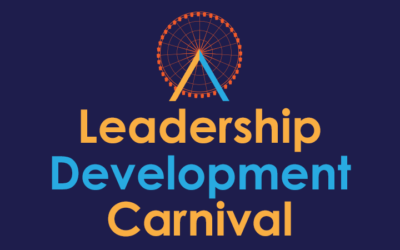Last year Northwestern University put out some discouraging research that confirmed what most of us know about leadership stereotypes – they’re male.
There are other studies that say actual women – not stereotypes – are often viewed as very good leaders. But the stories we tell are filled with stereotypes.
The subject of women in leadership always surfaces plenty of paradoxes, but the one represented by these studies is particularly fascinating because it brings into stark contrast the collision between our fantasies and our realities. I’ve been very focused on this paradox lately as I work to put together two eSeminars this Fall to help women use the power of their authentic, personal archetype (the character beneath the stereotype) to fuel their business and career development efforts. It turns out that even though every woman has a powerful story to tell through their personal archetype, our most powerful stories are hard for the larger culture to “hear.” That said, research says that business cultures are starting to evolve and I’m happy to see equally encouraging signs that popular culture is starting to break away from male stereotypes of “leader” as well.
The Power Of Our Fantasies
Even though most successful business women are decided realists, we’ve all paid the price for the fantasies our culture has about women and men. When the women and men in the Northwestern study were asked to describe their ideal “leader”, they were struggling to describe “the King,” which is the archetypal character that fits their fantasy of “leader.” Sure, there is a “Queen” archetype, but can you think of a good queen in the stories we conjur up from our subconscious? Many evil, manipulative or martyred queens come to mind, but one as strong, courageous, storied and “in charge” as Richard the Lionhearted or King Arthur? And how many King and Queen couples can you think of that enjoyed a true balance of power?
Stories and their archetypal characters have power over we humans because they organize our complex world at subconscious and unconscious levels. It’s just the way our brains work and when it comes to entertaining ourselves, it’s all fun and games. But try to break the stereotypes and people push back (usually by refusing to vote with their box office dollars) because the non-stereotype challenges our conception of what is “real” and more importantly, challenges us personally if we’re choosing to live by stereotypical rules. There have been plenty of female characters that have pushed the boundaries and succeeded on male terms, from Nancy Drew to Wonder Woman, but few of the ones that hit the big box office of cultural acceptance ever challenged the fundamental rule of stereotypical women, which is that ultimate womanly success means landing a man. In our cultures’ strongest stories and cultural myths, men can succeed by vanquishing evil or acquiring gold, but a single goal isn’t enough for a woman, she has the double burden of protecting the village and acquiring a man (the latter being perfectly acceptable in an of itself most of the time).
Until now.
Two Stories That Are Breaking The Mold
I’ve been watching this mythical phenomenon ever since I studied Joseph Campbell in the Stone Age (ie, college). What’s fascinated me about this subject is that what’s most important about archetypes and stories isn’t whether any particular character or story breaks tradition, but whether and how the culture accepts it when it does. When the culture accepts a shift in its traditional story, that’s a sign that the culture is actually changing and evolving, perhaps ready to accept openly a shift that’s been brewing beneath the surface for decades.
Case in point. Our culture, founded on Puritan principles, has a story about itself that says “good people don’t deal with the subject of sex openly and honestly.” Anne Rice’s Beauty series of steamy novels were better written erotic fiction in the 1980’s than Fifty Shades of Grey are in the 2010’s, but that’s not the point. Our culture wasn’t ready to accept sexual stories into the mainstream in the 80’s and apparently now we are. E.L. James wrote the right story at the right time and Anne Rice wrote the right story at the wrong time (though she’s trying to cash in on it again now!)
When it comes to girl and boy heroes, who become Queens and Kings when they grow up, little girls and their mothers haven’t really been willing to replace the Cinderella fantasy with Lilo & Stitch or Mulan. But this summer two new Anglo heroines hit the big screen and painted the first glimmer of the girl hero that I believe have the potential to grow into a Queen who can stand next to the King in the minds of future generations. When Northwestern does it’s next meta-analysis of leader stereotypes in 2025, I hope that Princess Merida and Katniss Everdeen come to people’s minds.
Reorienting The Story Of Power
There are many notable aspects of Merida and Katniss that we could focus on here, but I want to point out the one that I think is the most revolutionary. Both girls “win” in traditional ways by demonstrating physical prowess and– at the very end – feminine compassion and willingness to sacrifice. This definition of victory isn’t actually all that revolutionary. All the great male heroes of our most beloved stories, from King Arthur to Luke Skywalker, win in the end with compassion, too.
But both Merida and Katniss did something else, they reoriented themselves and the audience with respect to the men in their lives, thus redefining their relationship with power. They did not reject the guys from the social circle they were in, actually going out of their way to include them, but they did not accept them personally as their savior or mate, an act that requires some redefinition of personal power. Katniss and Merida did not release any of their personal power to create the bonds they maintained. Instead, they took pride and contentment in their victory alone. The issue of who they may choose to partner with was left unresolved in a way that didn’t detract from their victory – for them or for us.
This is new stereotypical territory, and audiences accepted it. Both Katniss and Merida made it into the top five summer box office hits (along with Batman, Spiderman and Avengers, in case you need any other proof of the power of archetypal characters.)
These new girl hero stories will be lived out by future generations more than mine. How a female archetype who can succeed regardless of her couple status will evolve in the workplace is anyone’s guess. But I’m guessing it will be awesome.
For my part, I’m really looking forward to working with entrepreneurial women in our eSeminar next month to explore to discover and give voice to their personal archetypal stories of strong, successful women. I’m really excited to explore with my partner, Cindy Atlee of The Storybranding Group, the ways in which these old, male archetypes of power (like the Ruler, the Revolutionary and the Explorer) play out in women’s business lives (along with more feminine-inspired archetypes like Caregiver, Lover and Sage). We’ll be exploring this ground again November with up-and-coming corporate leaders, so I expect that over the next few months we’ll get a good look at these stories from all sides of the business world. I promise to report back on what we learn!
If you’re an entrepreneur who wants to infuse your prospect and client acquisition efforts with the power of your personal archetype, please consider attending our free webinar. As soon as you register, you’ll get to know your personal story type (I’m a Magician!) and in the webinar you’ll learn how it can help you attract your ideal clients!
Check out the resources in the InPower Coaching EQ at Work and Soft Skills Research Index.






